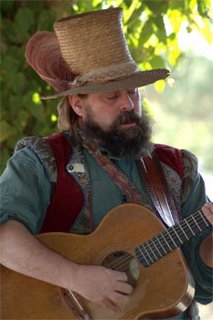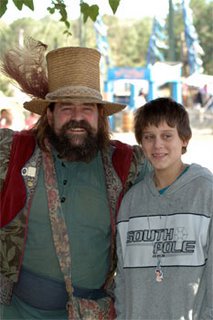The three of us left at 4:30 in the afternoon on Friday the 18th, and stopped for dinner at the Lake of the Ozarks. When I went to take my evening medications, I realized that my pills were still in the medicine cabinet. I called my physician, and he called in the prescriptions to the local Walmart where I filled them. Problem solved, except for my faulty memory. Chalk it up to the rush to get on the road...
We stayed the night at Buffalo, MO and were at Wilson's Creek by 8:30 AM Saturday morning.

The battlefield is in pretty much the same condition as it was 143 years ago, and the interpretive signs along the loop drive described the terrain and troop movements. The main difference was that the battle was fought in August of 1861, and we were there in late fall so our view was not as obstructed as it would have been for the 17,000 soldiers that fought there August 10.
General Nathaniel Lyon of the Federal forces was, by some accounts, reckless in his decision to mount a sneak attack on the Confederate positions. Other accounts view this as good

strategy based on the intended outcome, which was to keep the secessionist forces off guard and unable to function effectively in the southwest corner of Missouri, where they had been driven.
General Price and his 5,000 Missouri State Guard troops had joined with Ben McCulloch's 4,500 Confederate regulars in July of 1861, and were trying to maintain a hold on the southwest corner of Missouri. The were camped along Wilson's Creek, and their location was known to the Federal forces, whose force of about 6,000 men was garrisoned in Springfield. During July and early August the combined forces of Price and McCulloch totaled more than 12,000
The Southern commanders had planned a suprise attack on the Federals on August 9th, but called it off due to rain. Unlike the Union troops, with their leather cartridge

boxes, the paper cartridges used by the Southern troops were carried in pockets or otherwise exposed to the elements. Inexplicably, the Confederate sentinels were not posted that night and there was no one to observe the Union movements that evening and early the next morning.
General Lyon decided to mount a surprise attack the morning of August 10, and in another fateful event, the two Southern generals were in a location that provided an "accoustic shadow". That the Confederate positions were under attack was not believed at first, wasting valuable time.
When Price and McCulloch were able to marshal their troops and give orders, the tide rapidly turned against the Union forces, and they retreated to Springfield, having inflicted about as many casualties on the Confederates as were inflicted upon them.
The Union supply line relied on the railroad delivering materiel to Rolla, the end of the railway heading toward Springfield. Well-maintained dirt and gravel roads were

used to deliver the supplies to Springfield where the quartermaster allocated them to Union forces in the area.
The Confederates lived off the land, and were not able to stay in one place, since they had no supply lines through Missouri (The Union held the rivers, roads and railways). The Southern forces did not endear themselves to the local poplulace, which were not particularly sympathetic to the Southern cause in the first place, with their "requisitioning" of food, horses, and housing. The Union, for the most part, gave accounting for what they requisitioned. The war in southwest Missouri, as wars usually do, took a great economic toll on the local citizens, who were in the process of harvest.
All in all, the battle was a Southern victory, but in another fateful turn of events, Price and McCullough went their separate ways after a dispute. The regular army

McCulloch considered Price nothing more than a political general leading a state militia (partially true, but a bit unfair, considering Price's record). Price had issues with General McCullough's plans and was unwilling to commit his troops to another's command.
Subsequently, when Price and his command were subsumed into the Confederacy, both Price and McCulloch were placed under another general's command, and they would serve together again seven months later at the Battle of Pea Ridge.









